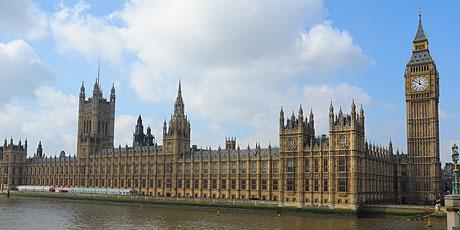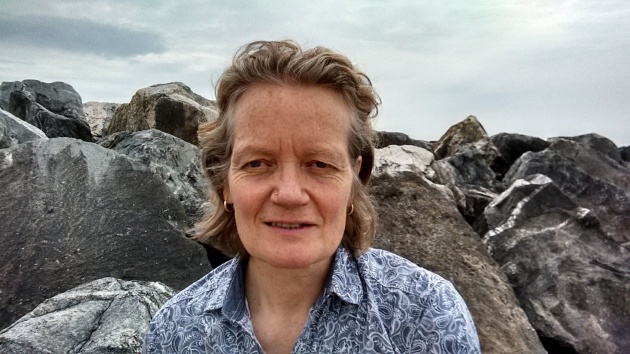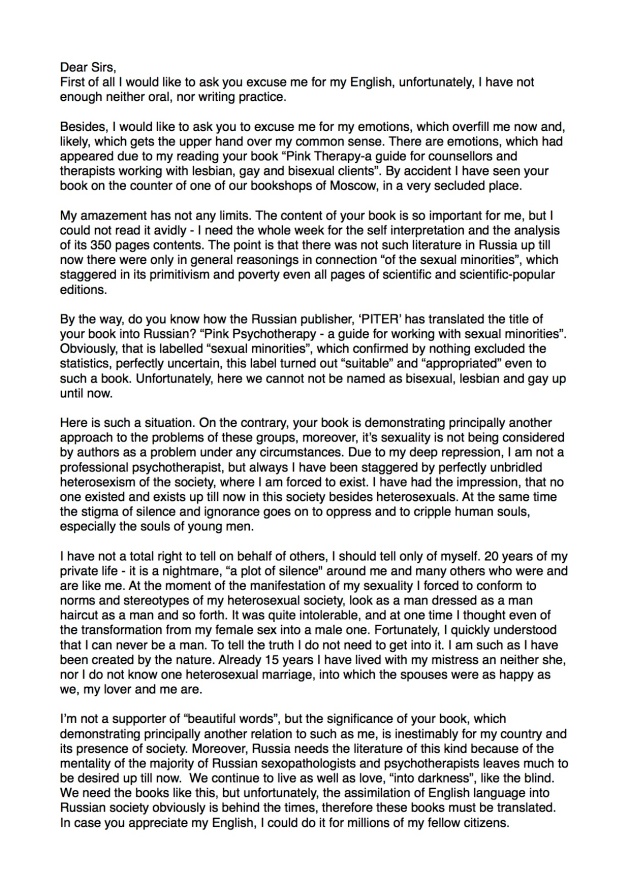We’re reproducing the speech Igi Moon made at the Parliamentary Launch for the new and revised Memorandum of Understanding (MoU) on Conversion Therapy. This document extends the protections afforded to lesbians, gay men and bisexual people from receiving harmful attempts to be heterosexual. This new document protects people who are gender diverse and those who are asexual from treatments from therapists.
Parliamentary MoU2 launch event – 4th July 2018
“I am here as Chair of the MoU Coalition against conversion therapy. The coalition is made up of 16 organisations as well as advisory bodies offering clinical and therapeutic services to LGBTQIA people. Together we represent over 100, 000 psychologists, psychotherapists, counsellors and healthcare workers.
The main purpose of today’s launch is for MP’s to meet with clinicians and campaigners ahead of the Government’s pledge to ‘end the practice of Conversion Therapy’. While the media yesterday reported an outright ban, we believe a ban will simply play into the hands of organisations that want publicity.
Yesterday – was the launch of the LGBT National survey. 108,100 people responded to the survey. It is the largest of its kind in the world. That is something all LGBT people can be proud of. But while we celebrate this survey we need to take a close look at the finer details of what it is saying about LGBT lives in our society. Because some findings make very uncomfortable reading. They tell a story that is all too familiar to LGBT people who still experience significant inequalities and fear for their personal safety – inequalities and fears that may well take them to see therapists. This is why we want all clinicians in training and practice to be made aware of the range of issues presented in the survey. And for all clinicians to be able to work competently with LGBT people
It is central that LGBT people can explore their feelings and thoughts in safety whether or not it is about their sexuality and/or gender identity with a qualified psychologist, psychotherapist, counsellor, or healthcare worker.
Shockingly, this is simply not the case. In our society, some people believe (for whatever reason) that LGBT people can be ‘cured’ of their sexuality or gender identity if they are LGBT. Through the use of Conversion Therapy (CT), also known as Reparative or Cure Therapy). More shockingly, they believe that the techniques of CT will suppress or change an LGBT person. These techniques include anything from pseudo-psychological treatments to spiritual counselling. At their most extreme, people in the survey reported undergoing surgical or hormonal interventions or even ‘corrective rape’. It is abhorrent as a practice.
Yesterday, the survey found that a total 7% of respondents had undergone or been offered Conversion Therapy and of this, 2% had undergone and 5% had been offered CT.
It is a very live issue – with young people16-24 more likely to have been offered CT than any other group.
The MoU Coalition published this MoU before the Survey results were announced because we were faced with mounting anecdotal evidence that we needed to protect sexual orientation including asexuality AND the variety of gender identities
Thanks to the survey we sadly find that anecdotal evidence was correct.
The survey found
- In terms of sexual orientation, Asexual people are the most likely group to undergo and be offered conversion therapy
- In relation to Gender Identity – Trans respondents were much more likely to have undergone or been offered conversion therapy more than cis people.
- That more trans men have been offered CT than non-binary people or trans women
- That more trans women have had conversion therapy than trans men or non-binary people
- That those most likely to have been offered CT or undergone CT live in Northern Ireland and London
So, who conducts CT to cis and Trans people?
- By far the greatest are faith organisations
- Healthcare or a medical professional is second – (with far more trans people being offered CT than cis people)
- Parent or guardian or family member
- Person from my community
- Other individuals or organisations
The fact healthcare and medical professionals conduct CT is a major shock and the MOU is asking that ethical practice is at the core of therapeutic work. This means practitioners must have adequate knowledge and understanding of gender and sexual diversity throughout their training before they can be accredited, registered or chartered. BUT MORE IMPORTANTLY IT MEANS ASKING LGBT PEOPLE WHAT THEY NEED – ESPECIALLY TRANS AND NON BINARY PEOPLE.
Both the BPS and BACP have published guidelines for working with gender and sexual minorities. This is a good start but not enough.
Our Training and Curriculum Development sub-Committee find that while organisations say they want to USE THE GUIDELINES AND TRAIN PEOPLE EFFECTIVELY – IN over 7 years of training, it has been found that anything between zero and 16 hours max are spent in total teaching ‘difference’. This needs to change.
Yesterday, the overwhelming statement was
“This practice (of CT) needs to end”
The Government Equalities Office action plan is to bring an end to the practice of CT.
We want to work with the government on legislative and non-legislative options.
At present we say no to an outright ban because CT is conducted by people who are obviously not therapists in some cases and would not call what they do anything more than a cure for a sickness. It needs more than a ban – it requires education at a young age that allows young people to be who they are without fear.
Likewise, it is still possible in this country to call yourself a counsellor or psychotherapist as these are not protected titles. We believe that the Government must address this issue.
Where is the MOU next?
2 areas the MOU Coalition are likely to address:
Support for the GRA review because it is a once in a lifetime opportunity for trans people to experience wide ranging social change. We must recognise the variety of gender identities as valid. As the Minister for Women and Equalities the Rt Honourable Penny Mordaunt Minister stated yesterday to a ringing round of applause: “a trans woman is a woman and a transman is a man” and we would add that those who wish to identify in the wide range of gender identities have that option. This is because the survey clearly identified that non-binary identities are on the rise and more respondents identified as non-binary
Second, we hope the General Synod will use the survey and our MoU as an opportunity to extend protection to Trans and non-binary people
Third we all – all of us have a debt to our future young people. We must remember that a central finding yesterday was 2000 people identified starting their transition AT SCHOOL. The survey only started from age 16
The MOU Coalition have brought on board those organisations such as Gendered Intelligence and Mermaids that work with young people under 16 to offer their thoughts about protecting these vulnerable children and teenagers. We are already hearing young people are the victims of Conversion therapy – sometimes in medical settings where we would expect safety. This must be investigated as a matter of urgency. We urge the Government to find out what is happening with young people who identify as LGBT and non-binary.
On a final note,
Over 2/3 of respondents stated they would not hold hands with their partner in public. It is pride on Saturday. I want to hold hands with the person I love. On Saturday, I want us all to be able to hold hands with those we love in public and in safety because
TO LIVE IN SAFETY IS OUR FREEDOM
AND TO HAVE OUR FREEDOM IS THE GREATEST FORM OF EQUALITY WE CAN SHARE
Thanks to Ben Bradshaw MP for hosting this event, to our speakers. I would like to thank all members of the Coalition and especially Rosie Horne from the BPS for working so hard to bring this event together.





 cally Meth, Meph and G) is producing some unique challenges and situations.
cally Meth, Meph and G) is producing some unique challenges and situations.